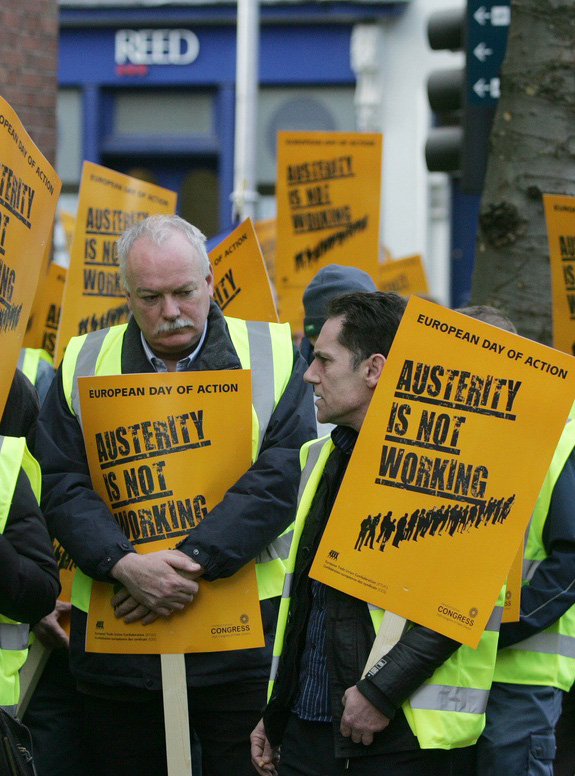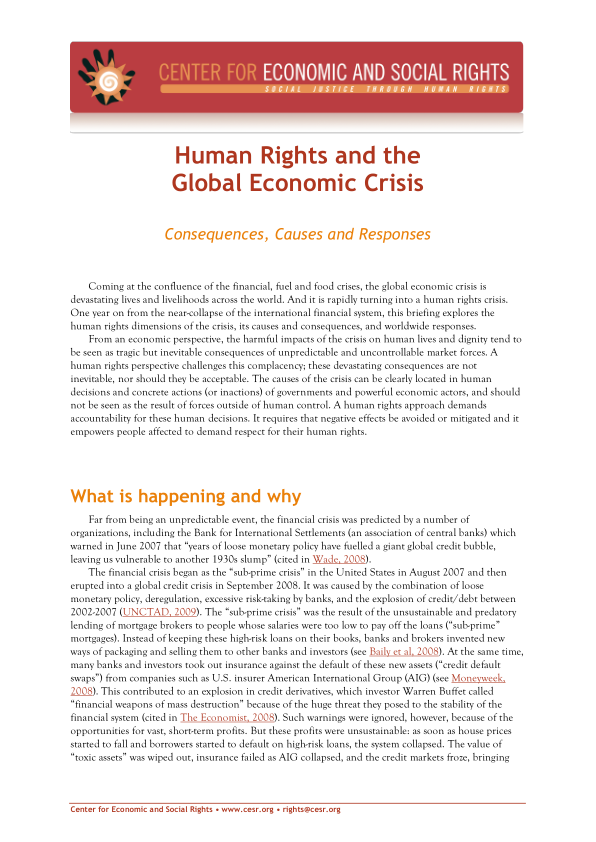 Coming at the confluence of the financial, fuel and food crises, the global economic crisis is devastating lives and livelihoods across theworld. And it is rapidly turning into a human rights crisis. One year on from the near collapse of the international financial system, a new CESR briefing explores the human rights dimensions of the crisis, its causes and consequences, and worldwide responses.
Coming at the confluence of the financial, fuel and food crises, the global economic crisis is devastating lives and livelihoods across theworld. And it is rapidly turning into a human rights crisis. One year on from the near collapse of the international financial system, a new CESR briefing explores the human rights dimensions of the crisis, its causes and consequences, and worldwide responses.
From an economic perspective, the harmful impacts of the crisis on human lives and dignity tend to be seen as tragic but inevitable consequences of unpredictable and uncontrollable market forces. A human rights perspective challenges this complacency; these devastating consequences are not inevitable, nor should they be acceptable. This new CESR briefing illustrates that the causes of the crisis can be clearly located in human decisions and concrete actions (or inactions) of governments and powerful economic actors, and should not be seen as the result of forces outside of human control.
A human rights approach demands accountability for these human decisions. It requires that negative effects be avoided or mitigated and it empowers people affected to demand respect for their human rights.
